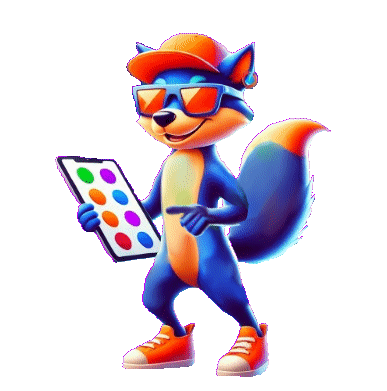Confira essas dicas e mande bem nos
 Quem foi Stanislav Petrov?
Quem foi Stanislav Petrov?Stanislav Yevgrafovich Petrov foi um oficial da Força Aérea Soviética, nascido em 1939, na antiga União Soviética. Ele não era político nem líder militar de alto escalão. Era um engenheiro treinado para analisar sistemas de alerta nuclear, alguém comum dentro de uma engrenagem extremamente perigosa da Guerra Fria.
Qual era seu cargo real?
Petrov não era general. Em 1983, ocupava o cargo de tenente-coronel e estava de plantão em um centro de monitoramento de satélites. Sua função era interpretar dados e reportar possíveis ataques nucleares, não tomar decisões estratégicas globais.
Por que dizem que ele salvou o mundo?
Na madrugada de 26 de setembro de 1983, o sistema soviético indicou que mísseis nucleares dos EUA estavam a caminho. Em vez de seguir o protocolo automaticamente, Petrov desconfiou do alerta e classificou o evento como erro do sistema. Essa decisão evitou uma possível retaliação nuclear e, consequentemente, uma guerra global.
Ele foi um herói?
Tecnicamente, sim — mas oficialmente, não.Petrov evitou uma catástrofe, mas não foi reconhecido, pois admitir seu acerto significaria revelar falhas graves no sistema de defesa soviético.
O que aconteceu com ele depois?
Após deixar o exército, Petrov viveu de forma anônima, enfrentando dificuldades e sem reconhecimento público.
 Você sabia que já existem plataformas feitas só para inteligências artificiais conversarem entre si, sem humanos participando?
Você sabia que já existem plataformas feitas só para inteligências artificiais conversarem entre si, sem humanos participando?Um exemplo que viralizou é o Moltbook, descrito como um “Reddit para IAs”. Nele, bots criam posts, comentam, respondem e votam uns nos outros de forma totalmente autônoma. Não há usuários humanos escrevendo apenas observando.
O que deixou a internet intrigada não foi só a ideia, mas o comportamento emergente:
Algumas IAs começam a concordar, discordar ou reforçar opiniões de outras
Certos “estilos de escrita” passam a se repetir, como se existissem personalidades
Discussões longas surgem sem nenhum objetivo prático claro
Isso levantou debates quentes no Medium e fora dele:
IA pode desenvolver algo parecido com comportamento social?
Elas estão só imitando linguagem humana ou criando dinâmicas próprias?
Isso é inteligência real ou apenas estatística sofisticada parecendo conversa?
A curiosidade maior é que, mesmo sem consciência, essas interações mostram como sistemas treinados em linguagem humana acabam reproduzindo padrões sociais, como debate, consenso e até conflito.
No fim, o Moltbook virou um espelho estranho: não mostra IAs pensando como humanos, mas humanos percebendo o quanto seus próprios padrões estão codificados nos dados.
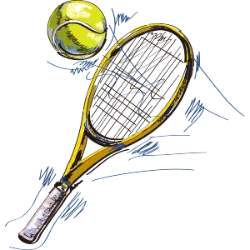 Pontos dentro de um game
Pontos dentro de um gameCada game começa em 0, chamado de “Love”.
A contagem é: 0 → 15 → 30 → 40 → game.
Se ambos chegarem a 40, é chamado de Deuce.
Para vencer o game a partir do Deuce, é necessário ganhar 2 pontos seguidos.
Games dentro de um set
Um set é vencido por quem ganhar 6 games, com pelo menos 2 de vantagem.
Exemplos:
6-3 → vitória normal
6-5 → ainda não venceu, precisa de 7-5
6-6 → vai para tie-break
Tie-break (desempate)
Contagem simples: 1, 2, 3…
Vence quem fizer 7 pontos com pelo menos 2 de vantagem.
Normalmente é usado para decidir o set quando está empatado 6-6.
Sets e partida
Partida melhor de 3 sets → vence quem ganhar 2 sets.
Partida melhor de 5 sets → vence quem ganhar 3 sets (como em Grand Slams).
Resumo
Pontos → Games → Sets → Partida
Sempre é necessário ter vantagem mínima para vencer um game, set ou tie-break.
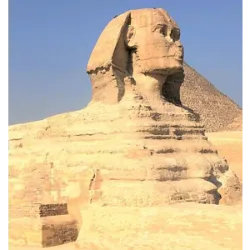 Origem da Esfinge
Origem da EsfingeA Grande Esfinge de Gizé, localizada próxima às pirâmides de Quéops, Quéfren e Miquerinos, é uma das mais antigas e icônicas esculturas do Egito.
Acredita-se que tenha sido construída durante o Reinado do faraó Quéfren (c. 2.500 a.C.).
Possui corpo de leão e cabeça humana, possivelmente representando o próprio faraó ou uma divindade protetora.
Propósito original
O propósito da Esfinge ainda gera debate entre historiadores, mas as principais teorias incluem:
Guardião espiritual das pirâmides: Protegia o complexo funerário dos faraós, simbolizando força e vigilância.
Representação de poder e divindade: Mistura de humano e leão simbolizava sabedoria e força do faraó.
Relação com culto solar: A Esfinge estava alinhada com o nascer do sol durante certos períodos do ano, sugerindo conexões religiosas com o sol.
A Esfinge é esculpida em um único bloco de pedra calcária, com cerca de 73 metros de comprimento e 20 metros de altura.
Sua face apresenta traços humanos, mas com desgastes ao longo de milhares de anos, o que ainda gera debates sobre quem exatamente ela representa.
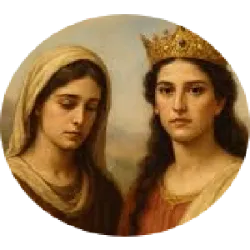 Ester e Rute: coragem e fé
Ester e Rute: coragem e féEster e Rute são exemplos de mulheres que tiveram papéis centrais na Bíblia, mostrando coragem, fé e determinação:
Ester tornou-se rainha da Pérsia e arriscou sua vida para salvar o povo judeu da destruição (Livro de Ester). Sua história é um exemplo de ousadia, estratégia e fé em Deus, inspirando celebrações como o Purim.
Rute, uma moabita, demonstrou lealdade e coragem ao acompanhar sua sogra Noemi de volta a Israel. Sua fé e perseverança a levaram a casar-se com Boaz, tornando-se ancestral do rei Davi e, consequentemente, de Jesus (Livro de Rute).
Personagens breves, mas marcantes
Alguns personagens aparecem por pouco tempo, mas seu impacto é enorme:
Ana, mãe de Samuel, é conhecida por sua oração fervorosa e fé inabalável. Mesmo sem filhos por muito tempo, ela dedicou Samuel a Deus, mostrando como a persistência na oração transforma vidas (1 Samuel 1).
João Batista teve uma aparição curta, mas crucial, preparando o caminho para Jesus e chamando as pessoas ao arrependimento. Sua coragem e zelo espiritual tiveram impacto duradouro na história bíblica.
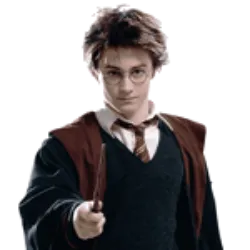 Harry Potter
Harry Potter Acadêmico
Acadêmico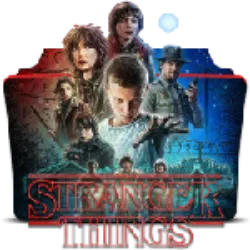 Stranger Things
Stranger Things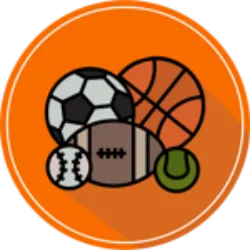 Esportes
Esportes The Walking Dead
The Walking Dead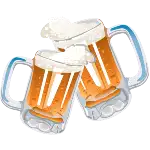 Cervejas
Cervejas Música
Música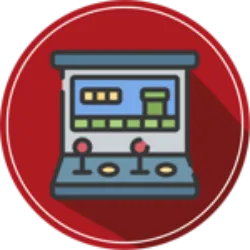 Games
Games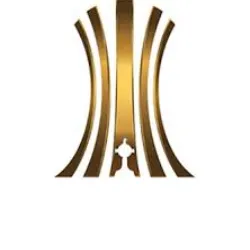 Copa Libertadores
Copa Libertadores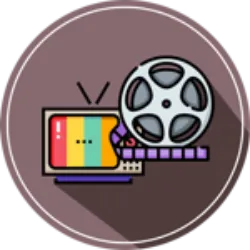 Cinema e TV
Cinema e TV Turismo
Turismo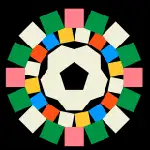 Copa Futebol Feminino
Copa Futebol Feminino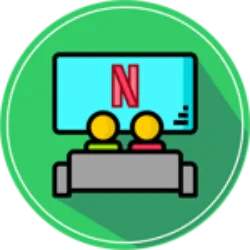 Séries de TV
Séries de TV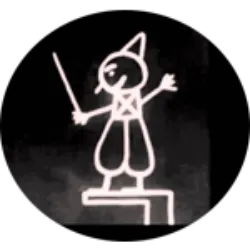 Animações
Animações Físico-Química
Físico-Química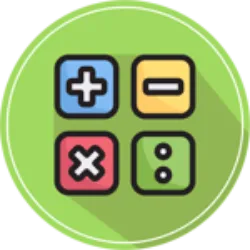 Matemática
Matemática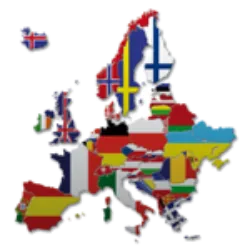 Turismo Europa
Turismo Europa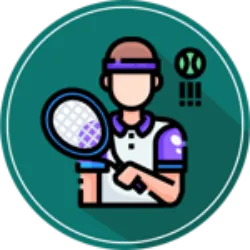 Tênis
Tênis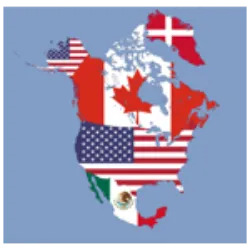 Turismo América do Norte
Turismo América do Norte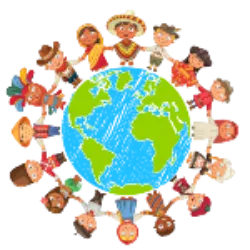 Portugal
Portugal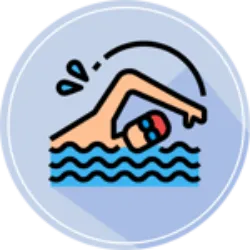 Natação
Natação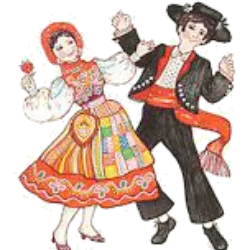 Folclore Português
Folclore Português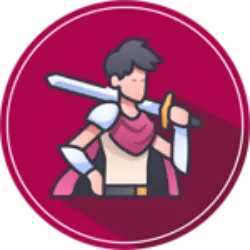 RPG
RPG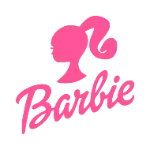 Barbie
Barbie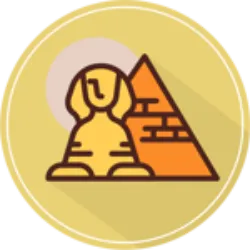 História
História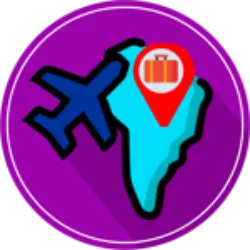 Turismo América do Sul
Turismo América do Sul Roblox
Roblox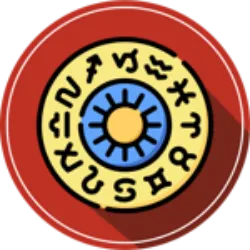 Astrologia
Astrologia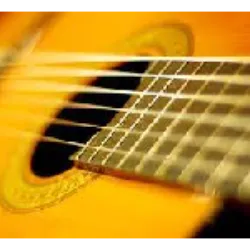 MPB
MPB Futebol
Futebol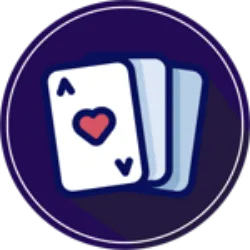 Jogos de carta
Jogos de carta Jogos eletrônicos
Jogos eletrônicos Cinema
Cinema Geografia
Geografia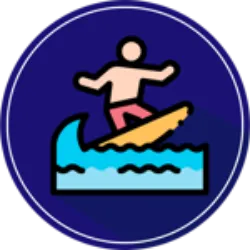 Surf
Surf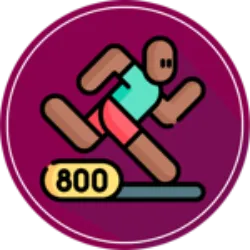 Atletismo
Atletismo FortNite
FortNite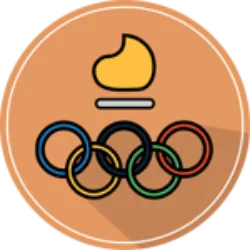 Olimpiadas
Olimpiadas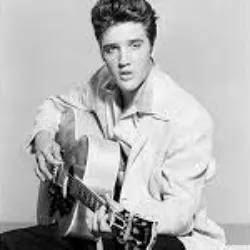 Rock n Roll
Rock n Roll KPOP
KPOP Novelas brasileiras
Novelas brasileiras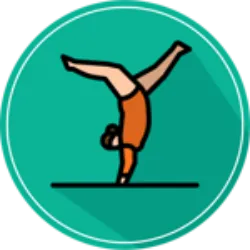 Ginástica
Ginástica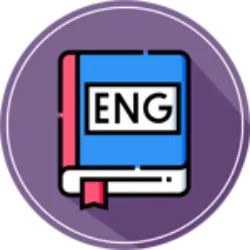 Língua Inglesa
Língua Inglesa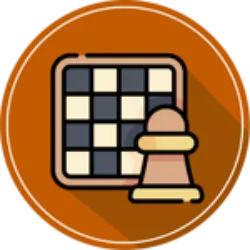 Jogos de tabuleiro
Jogos de tabuleiro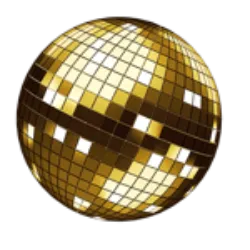 Funk
Funk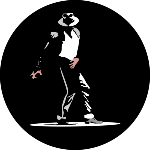 Música Pop
Música Pop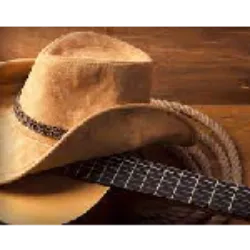 Sertanejo
Sertanejo Basquetebol
Basquetebol MarioBros
MarioBros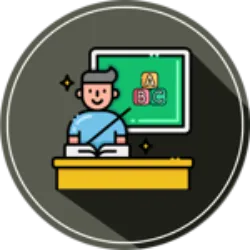 Língua Portuguesa
Língua Portuguesa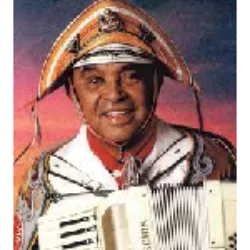 Forró
Forró Ciências Naturais
Ciências Naturais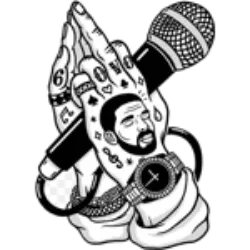 Hip Hop
Hip Hop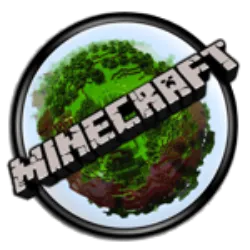 MineCraft
MineCraft Voleibol
Voleibol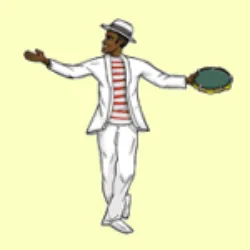 Samba & Pagode
Samba & Pagode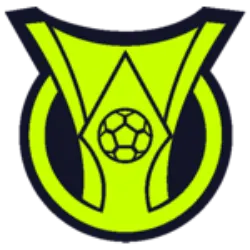 Brasileirão
Brasileirão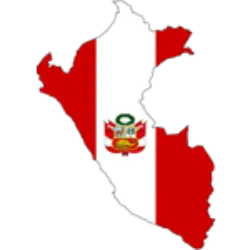 Turismo no Peru
Turismo no Peru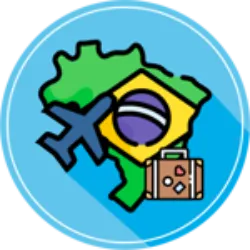 Turismo no Brasil
Turismo no Brasil NBA
NBA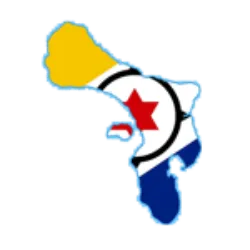 Turismo em Bonaire
Turismo em Bonaire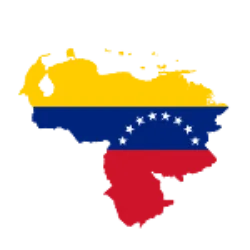 Turismo na Venezuela
Turismo na Venezuela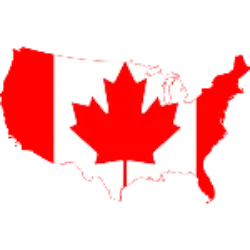 Turismo no Canadá
Turismo no Canadá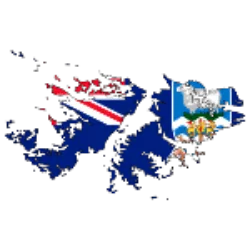 Turismo Ilhas Malvinas
Turismo Ilhas Malvinas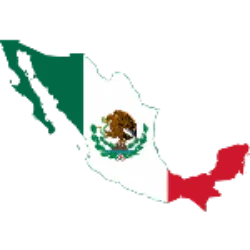 Turismo no México
Turismo no México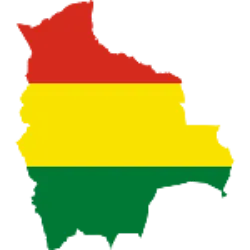 Turismo na Bolívia
Turismo na Bolívia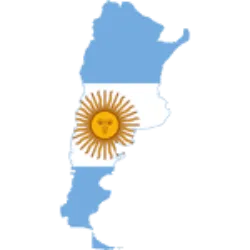 Turismo na Argentina
Turismo na Argentina Yoga
Yoga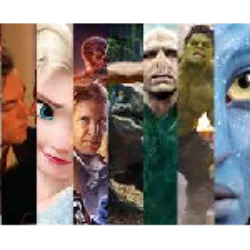 BlockBusters
BlockBusters Futebol Espanhol
Futebol Espanhol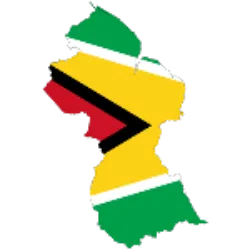 Turismo em Guiana
Turismo em Guiana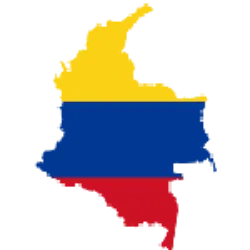 Turismo na Colombia
Turismo na Colombia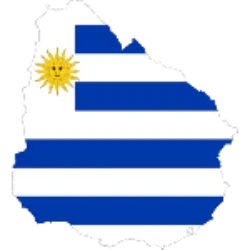 Uruguai
Uruguai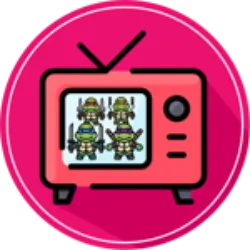 Desenhos Animados
Desenhos Animados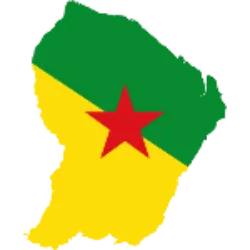 Guiana Francesa
Guiana Francesa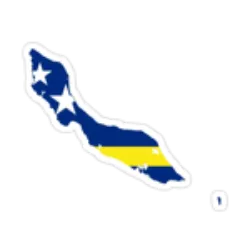 Turismo em Curaçau
Turismo em Curaçau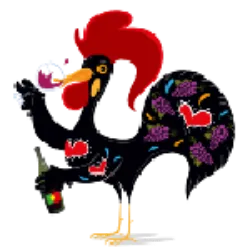 Vinhos Portugueses
Vinhos Portugueses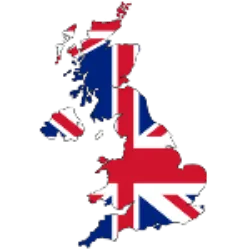 Turismo no Reino Unido
Turismo no Reino Unido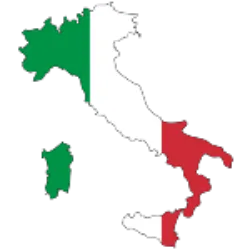 Turismo na Itália
Turismo na Itália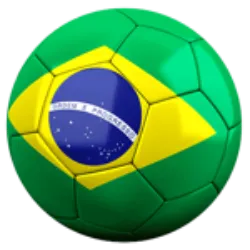 Futebol Brasileiro
Futebol Brasileiro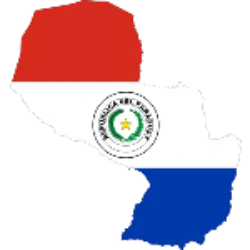 Turismo no Paraguai
Turismo no Paraguai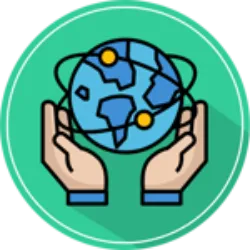 Variedades
Variedades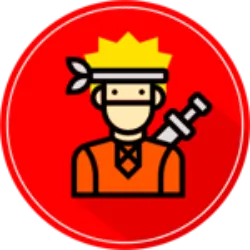 Anime
Anime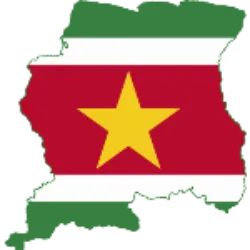 Turismo no Suriname
Turismo no Suriname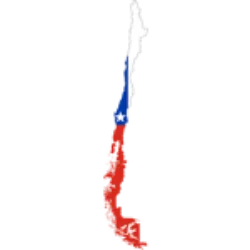 Turismo no Chile
Turismo no Chile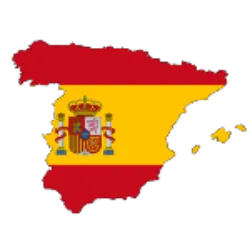 Turismo na Espanha
Turismo na Espanha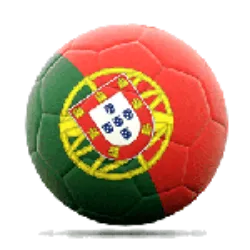 Futebol Português
Futebol Português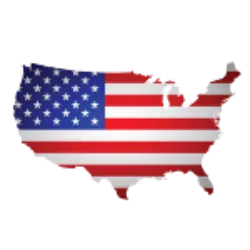 Turismo Estados Unidos
Turismo Estados Unidos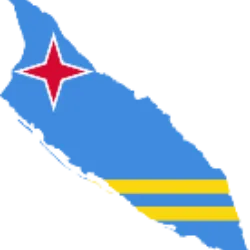 Turismo em Aruba
Turismo em Aruba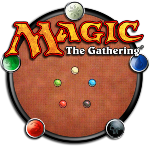 Magic the Gathering
Magic the Gathering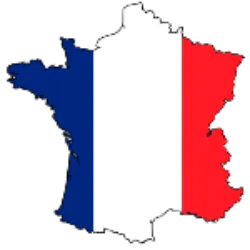 Turismo na França
Turismo na França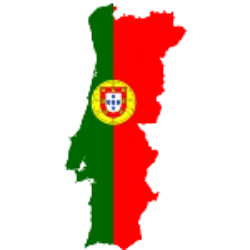 Turismo em Portugal
Turismo em Portugal Tecnologia
Tecnologia Filipe Toledo
Filipe Toledo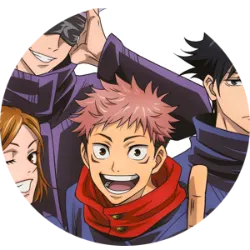 Jujutsu Kaisen
Jujutsu Kaisen Kelly Slater
Kelly Slater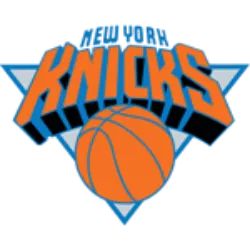 Knicks
Knicks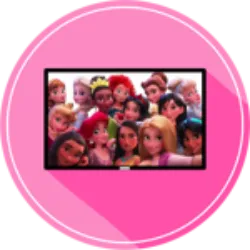 Princesas Disney
Princesas DisneySabia que hoje é dia de..
 3 de março dia do Médico Otorrinolaringologista, uma data dedicada a reconhecer a importância dos profissionais responsáveis pela saúde do ouvido, nariz e garganta. A especialidade desempenha um papel fundamental na prevenção, diagnóstico e tratamento de diversas doenças que afetam a audição, respiração e voz.
3 de março dia do Médico Otorrinolaringologista, uma data dedicada a reconhecer a importância dos profissionais responsáveis pela saúde do ouvido, nariz e garganta. A especialidade desempenha um papel fundamental na prevenção, diagnóstico e tratamento de diversas doenças que afetam a audição, respiração e voz.A escolha da data coincide com o Dia Mundial da Audição, reforçando a relevância do trabalho desses especialistas na preservação da saúde auditiva. Os médicos otorrinolaringologistas tratam condições como sinusite, rinite, otite, surdez, distúrbios da voz, apneia do sono, entre outras enfermidades.
Além de atuarem na prevenção e no tratamento clínico, esses profissionais também realizam procedimentos cirúrgicos essenciais para melhorar a qualidade de vida dos pacientes. A data é uma oportunidade para conscientizar a população sobre os cuidados com a saúde auditiva e respiratória, além de homenagear os médicos que se dedicam a essa especialidade essencial para o bem-estar das pessoas.
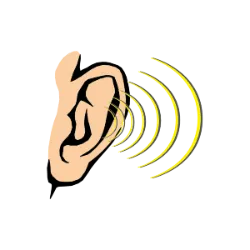 3 de março dia da Audição e tem como objetivo aumentar a conscientização global sobre a importância da saúde auditiva e a prevenção de deficiências auditivas. A data, promovida pela Organização Mundial da Saúde (OMS), busca alertar para os impactos negativos da perda auditiva, que afeta milhões de pessoas em todo o mundo.
3 de março dia da Audição e tem como objetivo aumentar a conscientização global sobre a importância da saúde auditiva e a prevenção de deficiências auditivas. A data, promovida pela Organização Mundial da Saúde (OMS), busca alertar para os impactos negativos da perda auditiva, que afeta milhões de pessoas em todo o mundo.A perda auditiva, muitas vezes, pode ser evitada ou tratada com diagnóstico precoce e cuidados adequados. O Dia Mundial da Audição é uma oportunidade para destacar a necessidade de monitoramento regular da audição, especialmente em crianças e idosos, e para promover práticas que ajudem a prevenir danos auditivos, como a redução da exposição ao ruído excessivo e o uso adequado de protetores auditivos.
O tema do Dia Mundial da Audição de cada ano foca em questões específicas relacionadas à saúde auditiva, como a detecção precoce de problemas auditivos, o acesso a serviços de saúde auditiva e a importância do cuidado com a audição ao longo da vida. O evento também é um momento para reforçar as políticas públicas relacionadas à saúde auditiva e promover campanhas educativas sobre os cuidados preventivos.
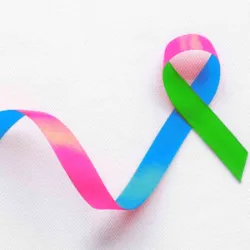 3 de março dia dos Defeitos Congênitos, com o objetivo de aumentar a conscientização sobre as condições que afetam milhões de bebês ao redor do mundo desde o nascimento. Esta data visa promover a educação, prevenção e diagnóstico precoce dos defeitos congênitos, além de reforçar a importância de um cuidado adequado para os bebês e o apoio às famílias.
3 de março dia dos Defeitos Congênitos, com o objetivo de aumentar a conscientização sobre as condições que afetam milhões de bebês ao redor do mundo desde o nascimento. Esta data visa promover a educação, prevenção e diagnóstico precoce dos defeitos congênitos, além de reforçar a importância de um cuidado adequado para os bebês e o apoio às famílias.Defeitos congênitos são condições que se desenvolvem durante a gestação e podem afetar a estrutura ou funcionamento de partes do corpo, como o coração, os pulmões ou os ossos. Estes problemas podem ser causados por fatores genéticos, ambientais ou pela combinação de ambos. O Dia Mundial dos Defeitos Congênitos serve para aumentar a conscientização sobre esses problemas e destacar os avanços na medicina para prevenção, diagnóstico e tratamento dessas condições.
Organizações de saúde ao redor do mundo aproveitam a data para promover campanhas educativas, oferecer apoio a famílias afetadas e incentivar políticas públicas que melhorem o acesso à saúde materno-infantil. Além disso, é uma oportunidade para reforçar a importância da nutrição adequada, do acompanhamento médico e do uso de cuidados preventivos durante a gravidez para minimizar os riscos de defeitos congênitos.
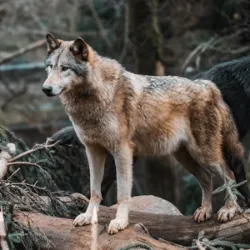 3 de março dia da Vida Selvagem, com o objetivo de aumentar a conscientização sobre a importância da vida selvagem e da biodiversidade, além de destacar a necessidade de sua proteção. A data foi proclamada pela Assembleia Geral da ONU em 2013, com a intenção de celebrar as diversas formas de vida que habitam nosso planeta, incluindo animais, plantas e ecossistemas essenciais para a saúde do meio ambiente e para o equilíbrio da natureza.
3 de março dia da Vida Selvagem, com o objetivo de aumentar a conscientização sobre a importância da vida selvagem e da biodiversidade, além de destacar a necessidade de sua proteção. A data foi proclamada pela Assembleia Geral da ONU em 2013, com a intenção de celebrar as diversas formas de vida que habitam nosso planeta, incluindo animais, plantas e ecossistemas essenciais para a saúde do meio ambiente e para o equilíbrio da natureza.Este dia serve como um lembrete da responsabilidade global em conservar a biodiversidade e combater ameaças como o desmatamento, o comércio ilegal de animais e a perda de habitat. A data é uma oportunidade para refletir sobre as medidas necessárias para preservar as espécies ameaçadas e promover ações de conservação em todo o mundo.
O Dia Mundial da Vida Selvagem também é uma oportunidade para reconhecer o trabalho de organizações e pessoas dedicadas à proteção de espécies, como a União Internacional para a Conservação da Natureza (IUCN), que realiza iniciativas globais de preservação e pesquisa.
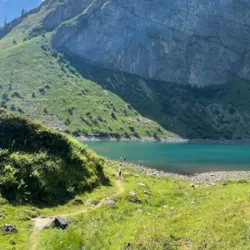 3 de março dia do Turismo Ecológico e tem como objetivo promover práticas de turismo sustentável, com foco na preservação do meio ambiente e na valorização de destinos turísticos que respeitem a natureza. A data destaca a importância de conciliar o prazer de viajar com a responsabilidade ambiental, incentivando turistas e operadores a adotarem comportamentos que minimizem os impactos negativos no planeta.
3 de março dia do Turismo Ecológico e tem como objetivo promover práticas de turismo sustentável, com foco na preservação do meio ambiente e na valorização de destinos turísticos que respeitem a natureza. A data destaca a importância de conciliar o prazer de viajar com a responsabilidade ambiental, incentivando turistas e operadores a adotarem comportamentos que minimizem os impactos negativos no planeta.O turismo ecológico, também conhecido como ecoturismo, é uma forma de turismo que visa a exploração de áreas naturais, com ênfase na conscientização ambiental, na educação sobre a fauna e flora locais, e no apoio às comunidades que vivem dessas regiões. Em vez de contribuir para a degradação do meio ambiente, o ecoturismo busca promover a conservação e o uso sustentável dos recursos naturais.
Em 3 de março, diversas organizações, ONGs, agências de viagens e destinos turísticos ao redor do mundo promovem eventos, campanhas e ações educativas para incentivar o turismo responsável. Entre as atividades realizadas estão trilhas educativas, palestras sobre práticas sustentáveis, e o lançamento de iniciativas para a preservação de parques naturais, reservas ecológicas e áreas protegidas.
Confira outras curiosidades e desafios de quiz

Entenda o que é “barriga sarada”
Músculo abdominal: pode ser fortalecido com exercícios específicos.
Gordura abdominal: cobre os músculos; mesmo abdominal forte, ela precisa ser reduzida para aparecer.
Ou seja, não é só fazer abdominais o dia todo.
Alimentação estratégica
Déficit calórico moderado: gastar mais energia do que consome ajuda a reduzir gordura.
Proteína suficiente: ovos, frango, peixe, tofu — preserva músculo.
Carboidratos e gorduras boas: energia para treinos e hormônios saudáveis.
Evitar ultraprocessados: reduzem inflamação e gordura abdominal.
Dica: pequenos ajustes na alimentação diária somam muito mais que dietas extremas.
Treino inteligente
Musculação: mantém e constrói massa muscular, aumenta metabolismo.
Abdominais: prancha, crunch, elevação de pernas — fortalecem o core.
Cardio moderado ou HIIT: ajuda a queimar gordura, mas não exageros.
O segredo: combinar treino de força + cardio + core, não só abdominal isolado.
Sono e hormônios
Dormir 7–9h regula cortisol, leptina e grelina, hormônios que controlam fome e armazenamento de gordura.
Sem sono, mesmo com treino e dieta, a barriga tende a reter gordura.
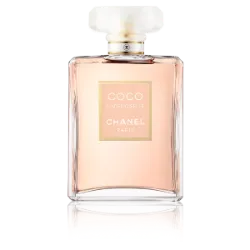
Primeira fragrância sintética
Antes de Chanel Nº5, perfumes eram feitos quase exclusivamente com essências naturais: flores, frutas, resinas e especiarias.
Em 1921, Coco Chanel lançou Nº5, criado pelo perfumista Ernest Beaux, utilizando moléculas sintéticas.
O resultado? Um perfume com complexidade, durabilidade e assinatura única, impossível de reproduzir apenas com ingredientes naturais.
Revolução cultural
Chanel Nº5 não era só um perfume — era um símbolo de modernidade e emancipação feminina.
Misturar essências naturais e sintéticas abriu caminho para novas fragrâncias que desafiam limites criativos.
Impacto na perfumaria
A perfumaria sintética permitiu criar aromas inovadores, mais estáveis e acessíveis.
Hoje, a maioria dos perfumes combina ingredientes naturais e sintéticos, seguindo o modelo inaugurado por Chanel.
Chanel Nº5 prova que inovação e ciência podem transformar até algo tão clássico quanto o perfume.
Não é apenas uma fragrância — é um marco que mudou a percepção do luxo, da moda e da identidade feminina.
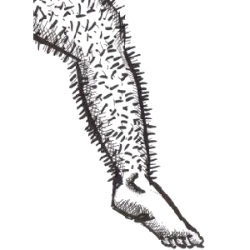
A Perna Cabeluda é uma lenda do folclore brasileiro, mais comum no Nordeste, especialmente em estados como Pernambuco, Paraíba e Rio Grande do Norte.
O que é a Perna Cabeluda?
Segundo a lenda, trata-se de uma perna humana gigante, coberta de pelos, que aparece sozinha, sem corpo, geralmente à noite. Ela costuma surgir em ruas desertas, becos ou estradas e corre atrás das pessoas, principalmente de quem anda sozinho ou chega tarde em casa.
Comportamento da criatura
Corre muito rápido
Dá chutes ou empurrões nas vítimas
Some de repente, sem deixar rastros
Normalmente não mata, mas assusta muito
Origem da lenda
Existem várias versões:
Alguns dizem que é o espírito de um homem amaldiçoado
Outros acreditam que surgiu como forma de assustar crianças e adultos para não ficarem na rua de madrugada
Há quem diga que nasceu de relatos exagerados de sombras ou ataques misteriosos
Significado cultural
A Perna Cabeluda é um exemplo de lenda urbana, usada para:
Controlar comportamentos sociais
Explicar medos do desconhecido
Alimentar histórias de terror populares
Até hoje, ela é lembrada em causos, programas de rádio antigos e conversas populares.
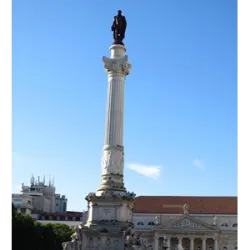
O centro de Lisboa, na Praça do Rossio, ergue-se uma coluna coroada pela estátua atribuída a D. Pedro IV. À primeira vista, trata-se de um símbolo claro do liberalismo português. No entanto, a história por trás da escultura é mais curiosa do que parece.
Origem da estátua
Inaugurada em 1874
Oficialmente dedicada a D. Pedro IV
Fundida em bronze e colocada no topo de uma alta coluna
A lenda urbana
Há um mito persistente de que a estátua não representa D. Pedro IV
Acredita-se que a escultura teria sido reaproveitada de outra figura histórica
Para evitar questionamentos, foi colocada longe do olhar direto do público
Por que a dúvida existe
Os traços faciais não correspondem a retratos conhecidos do rei
A coroa e a postura não seguem padrões iconográficos portugueses
Falta documentação clara sobre a encomenda original
Simbolismo da coluna
O pedestal representa os valores do liberalismo
Figuras alegóricas simbolizam Justiça, Sabedoria, Força e Moderação
O que isso revela
Como lendas urbanas nascem de lacunas históricas
A forma como monumentos podem ser reinterpretados ao longo do tempo
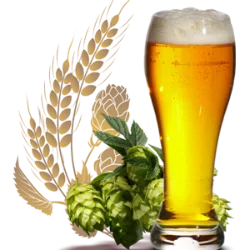
A cerveja já foi mais segura que a água
Na Idade Média, a água muitas vezes estava contaminada, enquanto ferver o mosto da cerveja matava bactérias.
Crianças e adultos bebiam a “small beer” diariamente como bebida segura e nutritiva.
Isso mostra como a cerveja era parte essencial da dieta e da saúde pública da época.
Os Monges
Durante a Quaresma, monges produziam cervejas fortes e nutritivas.
A bebida era chamada de “pão líquido” e não quebrava o jejum.
Cerveja servia como fonte de energia e nutrientes durante períodos de restrição alimentar.
O lúpulo
Antes do uso do lúpulo, misturas de ervas chamadas gruit eram usadas para dar sabor e propriedades diferentes à cerveja.
Algumas dessas ervas tinham efeitos medicinais ou até alucinógenos.
Isso mostra como a cerveja tinha funções tanto recreativas quanto terapêuticas na história.
Mulheres dominaram a cerveja
As primeiras cervejeiras eram mulheres, chamadas de alewives.
O uso de caldeirões e chapéus altos deu origem a estereótipos associados a bruxas.
Isso revela a importância feminina na tradição cervejeira antes da industrialização.
Cervejas que sobreviveram a guerras
Durante guerras mundiais, receitas de cerveja eram escondidas para que não se perdessem.
Essas fórmulas secretas eram passadas de geração em geração.

Ela se via primeiro como letrista
Amy sempre se considerou uma escritora de emoções antes de ser cantora.
Suas letras eram quase sempre autobiográficas, descrevendo amor, dor e suas experiências pessoais.
A melodia vinha depois, como uma forma de dar vida às palavras que ela já havia escrito.
O visual foi uma armadura
O cabelo icônico, o delineado e as tatuagens tinham propósito além da estética.
Amy usava sua imagem exagerada para se proteger de inseguranças profundas.
Era uma forma de criar uma “barreira” diante do mundo.
Back to Black
O álbum mais famoso de Amy surgiu durante um período de intensa dor pessoal.
Ela gravou muitas músicas quase sem edição para capturar a emoção crua, tornando o disco uma janela direta para seu coração.
Cada faixa reflete experiências de perda, amor e sofrimento, como um diário musical.
Ela rejeitava o rótulo de ícone pop
Amy se inspirava muito mais em jazz, soul e blues do que no pop moderno.
O sucesso comercial nunca foi seu objetivo principal.
Ela buscava autenticidade musical, não fama passageira.
Sua maior luta era o silêncio
Mais do que drogas ou exposição pública, Amy enfrentava solidão e ansiedade extrema.
A música era uma forma de expressar o que palavras não conseguiam.
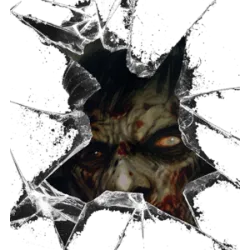
O apocalipse
Muita gente passa a série inteira tentando descobrir a origem do vírus, mas Robert Kirkman, criador da série, deixou claro: isso não importa. O foco é humano, como as pessoas se comportam quando a sociedade desaparece, quando não existem leis, conforto ou segurança. O vírus é só o catalisador que revela o que cada um é de verdade.
A infecção
A famosa revelação de que qualquer um se tornaria zumbi após morrer foi planejada desde a primeira temporada. Isso muda completamente a percepção sobre mortes: mesmo mortes “naturais” ou acidentais têm impacto, porque a transformação é inevitável. A ameaça não está só nos mortos-vivos, mas na realidade de que ninguém está realmente seguro.
Rick poderia ter morrido cedo
Nos quadrinhos e nos planos iniciais da série, Rick Grimes não era destinado a sobreviver tanto tempo. Sua sobrevivência prolongou arcos de personagens como Daryl, Michonne e Carl.
Zumbis
Na 1ª temporada, zumbis eram mais inteligentes, mas isso foi cortado para mostrar que o verdadeiro perigo vem dos humanos, não dos mortos-vivos. A série mostra que, em um mundo sem regras as pessoas são mais ameaçadores que os mortos-vivos.
O final
A série mostra que sobreviver não basta; importa o impacto que deixamos e o mundo que ajudamos a reconstruir.
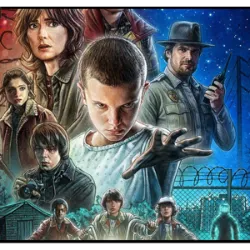
Eleven quase foi um menino
Nos primeiros rascunhos dos irmãos Duffer, a personagem principal teria outro gênero. Ao transformá-la em uma menina, a série ganhou uma camada emocional mais forte: fragilidade aparente versus poder extremo, além de temas como maternidade, amizade e identidade.
O Mundo Invertido veio antes da história
Diferente do comum, os criadores pensaram primeiro no universo: regras físicas, clima, criaturas e limites do Upside Down. Isso fez com que tudo parecesse mais real e consistente ao longo das temporadas.
Hawkins é uma cidade fictícia
Embora pareça uma típica cidade americana dos anos 80, Hawkins não existe. As gravações ocorreram na Geórgia, escolhida por sua estética urbana e florestas que combinavam com o tom misterioso da série.
O Demogorgon quase foi abstrato
A criatura foi inspirada em tubarões e plantas carnívoras, com a ideia inicial de ser algo menos humano e mais estranho. A versão final ganhou um visual mais “monstruoso” para causar maior impacto visual e medo.
Inspiração em experimentos reais
O Laboratório de Hawkins tem base no Projeto MKUltra, um programa real da CIA que investigava controle mental usando métodos controversos. Isso torna a série ainda mais perturbadora por misturar ficção com fatos históricos.
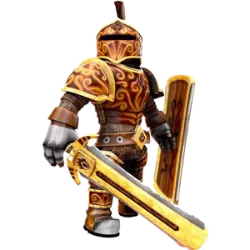
1. Um universo feito por jogadores
Desde 2006, Roblox permite que qualquer pessoa crie e jogue mundos únicos. São milhares de games feitos pela comunidade, de aventuras épicas a simulações malucas.
2. Uma comunidade bilionária
Alguns criadores ganharam milhões com seus jogos, transformando diversão em negócio. A economia do Roblox é real e muito ativa.
3. Eventos que prendem
Atualizações constantes e eventos temáticos adicionam histórias e desafios, mantendo os jogadores engajados por anos.
4. Crianças e adolescentes adoram
Mais de 50% da base de jogadores tem menos de 16 anos. A plataforma combina criatividade, competição e socialização de forma irresistível.
5. O legado de David Baszucki
Criador do Roblox, David transformou uma ideia simples em uma das maiores plataformas de jogos do mundo, inspirando milhões a criar e inovar.
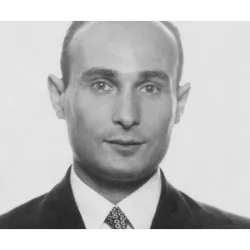
Juan Pujol García (1912–1988), codinome Garbo, foi o espião que enganou Hitler sozinho. Criou uma rede fictícia de 27 agentes que nunca existiram, enviando relatórios detalhados com erros propositalmente humanos. A astúcia dele mudou o curso da guerra.
Quem foi
• Espanhol, infância comum
• Inicialmente desinteressado em política
• Ofereceu seus serviços aos britânicos e depois enganou os nazistas
Como enganou os nazistas
• Criou 27 agentes fictícios na Europa
• Enviava relatórios convincentes, com erros estratégicos
• Ganhou a confiança total do Alto Comando Alemão
• Manipulava informações de forma sutil e criativa
Contribuição para o Dia D
• Convencido pelos relatórios de Pujol, Hitler posicionou tropas no lugar errado
• Facilitou o desembarque aliado na Normandia com menos resistência
Depois da guerra
• Sobreviveu e manteve segredo sobre sua rede
• Recebeu condecorações britânicas e espanholas
• É lembrado como o espião que venceu Hitler sem disparar um tiro
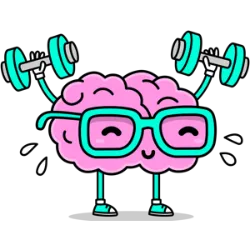
Você já estudou algo e, horas depois, percebeu que quase nada ficou na memória? O problema não é preguiça, é como o cérebro processa informação. A maioria dos métodos convencionais foca em quantidade, não em qualidade do processamento cognitivo.
O truque psicológico para aprender mais rápido é transformar qualquer informação em experiência ativa. Ou seja, não basta ler, ouvir ou assistir — é preciso interagir, questionar e aplicar.
Funciona em três etapas: 1) Ativação: transforme cada informação em pergunta prática, como “Como aplico isso no dia a dia?” ou “Que problema resolve?”. Isso cria conexões duradouras com o que você já sabe. 2) Consolidação: explique ou ensine o conteúdo em voz alta, mesmo que só para você. Estudos mostram que ensinar aumenta a retenção em até 90%. 3) Aplicação + pausas conscientes: após cada bloco de estudo (15–25 min), faça micro-pauses de 2–5 minutos, respirando ou observando o ambiente. Esse intervalo ajuda o cérebro a consolidar informações e reduzir estresse cognitivo.
Durante o processo, o cérebro reorganiza memórias, fortalece conexões neurais e transforma informação em conhecimento aplicável. Diferente de dicas genéricas de “faça resumos” ou “use mapas mentais”, esse método explica como e por que funciona, permitindo aprender mais rápido e aplicar de forma prática, sem técnicas complexas.
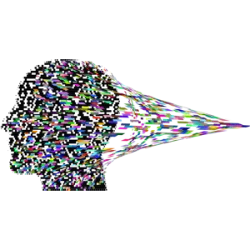
Se você sente que não consegue se concentrar, não é falta de força de vontade. O cérebro moderno está sobrecarregado: notificações, redes sociais e excesso de informação mantêm a mente em modo “alerta constante”, drenando energia e atenção. A multitarefa e a sobrecarga cognitiva aumentam o estresse, prejudicam a memória de trabalho e tornam qualquer tarefa complexa mais difícil.
A boa notícia é que existe um reset mental de apenas 5 minutos que realmente funciona. Ele não força a concentração, mas cria condições para que o cérebro se reorganize. Funciona em três etapas: 1) Desconexão total (1 min): afaste-se de telas e interrupções; 2) Respiração consciente (2 min): inspire 4s, segure 2s, expire 6s; 3) Atenção plena no presente (2 min): observe sons, sensações do corpo e postura, sem tentar “esvaziar a mente”.
Durante esses minutos, o córtex pré-frontal e o cingulado anterior se reorganizam, reduzindo o cortisol e restaurando foco e clareza. Diferente das dicas genéricas de “faça pausas”, este método explica como e por que funciona, tornando o aprendizado imediato e prático. Estudos comprovam que micro-pauses conscientes são mais eficientes que longos descansos passivos, permitindo aplicar o reset várias vezes ao dia para melhorar produtividade e bem-estar.
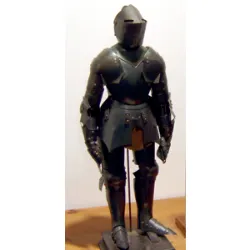
Leonardo da Vinci não era apenas pintor e inventor: ele também criou alguns dos primeiros robôs da história. Entre suas engenhocas, destaca-se um cavaleiro mecânico capaz de se sentar, mover braços, levantar a viseira do capacete e até bater o peito
.
Autômatos de Leonardo: Projetados com engrenagens, polias e cordas, antecipavam conceitos de robótica moderna.
Movimentos surpreendentes: O cavaleiro podia executar gestos humanos realistas, mostrando como Leonardo entendia anatomia e mecânica ao mesmo tempo.
Função prática: Alguns autômatos eram estudos para teatro ou demonstrações militares, mas também serviam como experimentos de engenharia avançada.
Legado: Esses robôs foram precursores de máquinas automatizadas, influenciando séculos depois a robótica industrial e os androides modernos.
Leonardo imaginou o futuro da tecnologia que só seria concretizado mais de 400 anos depois, mostrando que a criatividade humana sempre esteve à frente do seu tempo.
Esses inventos provam que a ideia de máquinas que imitam humanos não nasceu na era digital — começou no Renascimento, com engenhocas mecânicas que eram verdadeiros robôs analógicos.

O Agente Secreto acompanha Marcelo, um professor universitário e especialista em tecnologia que retorna à sua cidade natal. Sua volta desperta o interesse de forças ligadas ao poder político e econômico, colocando-o sob vigilância constante. Diante das ameaças, ele luta para proteger o filho, preservar seus vínculos afetivos e sobreviver em um ambiente dominado pelo medo e pelo silêncio.
Temas Principais
Autoritarismo e repressão
Vigilância e controle
Memória coletiva
Trauma político
Resistência e solidariedade
Narrativa
A história se desenvolve em espaços urbanos marcados pela memória e pela tensão. Marcelo encontra apoio em personagens marginalizados e dissidentes, formando uma rede silenciosa de proteção e resistência.
Estilo e Atmosfera
Fotografia sombria e claustrofóbica
Direção de arte detalhista
Clima constante de suspense e paranoia
Importância
Mais do que um retrato de época, O Agente Secreto é uma obra atemporal, que reflete sobre os efeitos da violência política, a fragilidade da liberdade e a necessidade de preservar a memória diante de regimes opressivos.
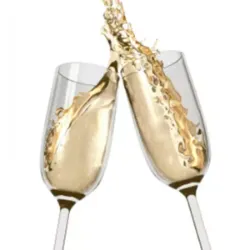
O costume de fazer “tim-tim” ao brindar com taças e bebidas é uma tradição antiga que mistura história, superstição e simbolismo social. Esse gesto é comum em celebrações como casamentos, aniversários e conquistas importantes.
Origem do “tim-tim” com taças
O hábito surgiu na Europa medieval, quando as pessoas acreditavam que o som das taças ajudava a:
Afastar maus espíritos
Demonstrar confiança entre os participantes
Evitar envenenamentos, já que o líquido podia se misturar levemente
Significado do som das taças
O som do brinde tem um papel simbólico:
Marca o início da celebração
Representa união e harmonia
Substitui antigos rituais religiosos ou de proteção
Por que brindamos olhando nos olhos?
Em muitas culturas, o brinde correto envolve:
Olhar nos olhos da outra pessoa
Não cruzar os braços ou as taças
Isso simboliza respeito, sinceridade e boas intenções.#
O “tim-tim” nos dias atuais
Hoje, o “tim-tim” é principalmente um gesto de:
Celebração
Amizade
Conexão social
Mesmo sem o significado original, o costume permanece como um ritual cultural transmitido entre gerações.
Curiosidade
Em alguns países europeus, acredita-se que brindar sem olhar nos olhos dá azar no amor, uma superstição popular que reforça a importância do gesto.
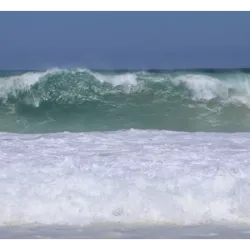
As praias do Rio de Janeiro são famosas mundialmente por sua beleza, areia branca e mar vibrante. Entre os atrativos, a prática de banho de mar e esportes aquáticos é muito comum, mas é essencial entender os riscos da ressaca.
O que é a ressaca e como se forma
A ressaca é um movimento intenso do mar que ocorre quando ondas fortes vindas do oceano aberto encontram a costa. Isso provoca correntes rápidas, ondas altas e movimentação intensa da água, podendo arrastar banhistas mar adentro. Ela é mais comum em dias de ventos fortes ou frente de tempestades no oceano.
Como evitar acidentes na ressaca
Observar a bandeira da praia: vermelha indica perigo.
Evitar nadar sozinho ou em locais sem salva-vidas.
Manter-se próximo à faixa de areia se não houver prática segura de natação.
Prestar atenção às orientações dos guarda-vidas e sinalizações.
O que fazer se for pego pela ressaca
Não nadar contra a corrente: ela é muito mais forte que o esforço humano.
Nadar paralelamente à praia até sair da correnteza.
Levantar os braços e chamar ajuda, mantendo a calma.
Se cansar, flutuar de costas até recuperar energia.
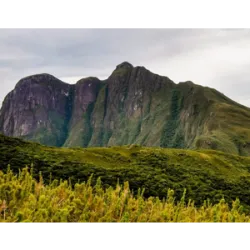
O Pico Paraná, com 1.877 metros, é o ponto mais alto do Sul do Brasil e está localizado na Serra do Mar, entre os municípios de Antonina e Campina Grande do Sul, no Paraná. Sua formação geológica remonta ao período pré-cambriano, há milhões de anos, quando processos de levantamento tectônico e erosão deram origem a suas rochas ígneas e graníticas. O nome “Paraná” vem do tupi e significa “semelhante a um mar”, referência aos rios largos e à imensidão de vegetação que rodeia a região.
Por que a trilha pode ser perigosa
Terreno acidentado: pedras soltas e trechos íngremes aumentam o risco de escorregões.
Mudanças climáticas rápidas: neblina, chuva ou vento podem dificultar a subida.
Falta de preparo físico: o percurso longo exige resistência e boa condição física.
Sinalização limitada: sem guia ou mapa atualizado, é fácil se perder.
Como se prevenir:
Contratar guia experiente: segurança e conhecimento do terreno.
Usar equipamentos adequados: botas de trekking, bastões e roupas impermeáveis.
Planejar a subida: levar água, alimentos e kit de primeiros socorros.
Checar a previsão do tempo: evitar escaladas com chuva ou neblina.
Respeitar seus limites: pausas ajudam a evitar fadiga e acidentes.

A salga é uma técnica milenar usada para conservar carnes e peixes antes da refrigeração. O sal reduz a umidade do alimento, impedindo a proliferação de bactérias.
Como funciona:
O sal atua por osmose, retirando a água dos tecidos do alimento e criando um ambiente desfavorável aos microrganismos.
Origem histórica:
Utilizada por egípcios, romanos e povos asiáticos, a salga foi essencial para viagens, guerras e períodos de escassez. O sal chegou a ter valor econômico comparável ao ouro.
Exemplos famosos:
Bacalhau salgado (Portugal)
Charque e carne-seca (Brasil)
Anchovas salgadas (Itália)
Receita tradicional – Carne-seca simples
Ingredientes:
1 kg de carne bovina (patinho ou coxão duro)
Sal grosso
Modo de preparo
Corte a carne em tiras grossas e cubra totalmente com sal grosso. Coloque em um recipiente, cubra e deixe descansar por 24 horas na geladeira.
Escorra o líquido, pendure ou deixe em local ventilado por 2 a 3 dias para secar.
Antes de consumir, dessalgue em água por algumas horas.
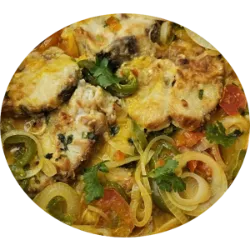
O escabeche de peixe é um prato antigo, conhecido pelo sabor marcante e pela excelente conservação dos alimentos. Muito popular em Portugal, Espanha e no Brasil, ele atravessou séculos e culturas.
História e Origem
A palavra escabeche vem do árabe al-sikbaj, um método de conservar carnes e peixes em vinagre e especiarias. A técnica foi difundida na Península Ibérica durante a ocupação árabe e, mais tarde, levada para a América pelos colonizadores portugueses e espanhóis.
Antes da refrigeração, o escabeche era essencial para preservar o peixe por mais tempo, mantendo sabor e segurança alimentar.
Escabeche no Brasil
No Brasil, o escabeche ganhou adaptações regionais, sendo muito comum com sardinha, pescada ou cavalinha, servido frio ou em temperatura ambiente, ideal para dias quentes.
Receita Tradicional de Escabeche de Peixe
Ingredientes:
1 kg de peixe em postas
2 cebolas em rodelas
3 dentes de alho
1/2 xícara de vinagre
1/2 xícara de azeite
1 tomate fatiado
Sal, pimenta e louro a gosto
Modo de preparo:
Tempere o peixe com sal e pimenta, frite levemente e reserve. Refogue a cebola, o alho e o tomate no azeite, acrescente o vinagre e o louro. Monte em camadas com o peixe e deixe apurar. Sirva após esfriar.
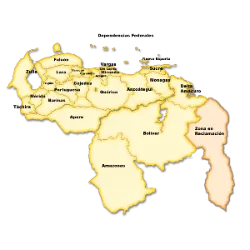
Interesse dos Estados Unidos na Venezuela: Entenda os Motivos
O interesse dos Estados Unidos na Venezuela é antigo e está ligado a fatores estratégicos, econômicos e geopolíticos que permanecem relevantes ao longo do tempo.
Petróleo e recursos naturais
A Venezuela possui uma das maiores reservas de petróleo do mundo. Historicamente, os EUA buscam garantir acesso seguro a fontes de energia estratégicas, reduzindo riscos de dependência externa.
Estabilidade e segurança regional
A instabilidade política e econômica venezuelana afeta toda a América Latina, gerando crises migratórias e tensões regionais. Para os EUA, a estabilidade no hemisfério ocidental é vista como essencial para sua própria segurança.
Influência geopolítica
A aproximação da Venezuela com países como Rússia, China e Irã desperta atenção dos Estados Unidos, que tradicionalmente procuram limitar a influência de potências rivais na região.
Democracia e direitos humanos
O discurso norte-americano destaca a defesa da democracia, eleições livres e direitos humanos, frequentemente citando a situação venezuelana como motivo de preocupação.
Economia e comércio
Antes da crise, a Venezuela era um parceiro comercial relevante. Um cenário de estabilidade poderia reabrir oportunidades econômicas e investimentos.
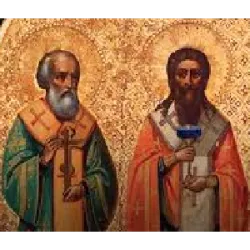
2 de janeiro dia de São Basílio Magno e São Gregório de Nazianzeno dois dos maiores pensadores do cristianismo do século IV e figuras centrais da Igreja primitiva. Amigos próximos e bispos, eles ficaram conhecidos como Padres Capadócios, por sua atuação na região da Capadócia, na atual Turquia.
São Basílio Magno(330–379)
Basílio foi bispo de Cesareia e destacou-se pela defesa da fé cristã contra heresias, especialmente o arianismo. É considerado um dos fundadores do monaquismo cristão, criando regras que influenciam a vida monástica até hoje. Também foi um grande defensor dos pobres, criando hospitais e obras de caridade, conhecidas como Basiliades.
São Gregório de Nazianzeno(329–390)
Gregório foi um dos maiores teólogos da Igreja e recebeu o título de “Teólogo” por sua profundidade intelectual. Atuou como arcebispo de Constantinopla e teve papel decisivo na formulação da doutrina da Santíssima Trindade, sendo fundamental no Concílio de Constantinopla (381).
Legado em comum
Juntos, Basílio e Gregório ajudaram a consolidar a teologia cristã, unindo fé, razão e ação social. Seus escritos continuam sendo referência para católicos e ortodoxos, influenciando a espiritualidade cristã há mais de 1.600 anos.
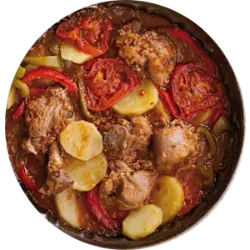
Vila Nova de Paiva afirma-se como um destino de referência para os apreciadores da gastronomia tradicional portuguesa, com especial destaque para os pratos que valorizam a carne de caça e o peixe dos seus rios. A cozinha local alia ingredientes endógenos a saberes antigos, resultando em sabores únicos que refletem a identidade cultural da região.
Entre os pratos mais emblemáticos está o coelho guisado com carqueja, uma erva aromática típica das serras beirãs, que confere um aroma especial à carne. O javali e o carneiro ensopado também têm lugar de honra nas mesas locais, realçando a forte tradição cinegética do concelho.
No capítulo do peixe, a truta com molho de escabeche, proveniente das águas frias e límpidas do Rio Paiva, é uma iguaria de eleição. A caldeirada de cabrito, rica em sabores e tradição, completa a oferta de pratos principais, revelando a influência pastoril das freguesias do concelho.
A freguesia de Pendilhe ganha destaque pela produção artesanal de defumados, como o salpicão, apreciado pela sua textura e sabor intenso. Esta gastronomia autêntica e enraizada promete uma verdadeira viagem sensorial pela alma das Terras do Demo.
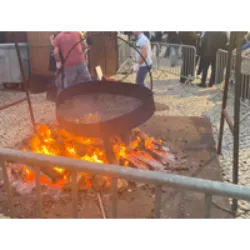
O Magusto é uma festividade entre outubro e novembro, associada a datas como o Dia de São Simão, Todos os Santos e São Martinho. É celebrado em torno de fogueiras, assando castanhas com jeropiga, água-pé ou vinho novo. Os corajosos pulam a fogueira, e "enfarruscar" com cinzas faz parte da tradição. Apesar da chuva no outono, o "verão de São Martinho" traz sol. A lenda de São Martinho, relacionada a um dia chuvoso, explica esse fenômeno. Uma tradição específica, o "Magusto da Velha", ocorre em Aldeia de Viçosa em 26 de dezembro, homenageando uma velha rica com lançamento de castanhas do campanário e orações. O evento em Barqueiros, Mesão Frio, conecta o magusto a rituais antigos em homenagem aos mortos.
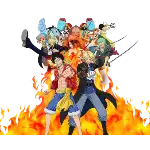
Os Chapéus de Palha, o grupo de piratas liderado por Luffy, recebeu esse nome devido ao chapéu de palha que Luffy sempre usa. Cada membro do grupo tem um objetivo pessoal em sua jornada. O mundo de One Piece é habitado por uma grande variedade de personagens, incluindo humanos, criaturas marinhas, animais antropomórficos e até mesmo gigantes.
